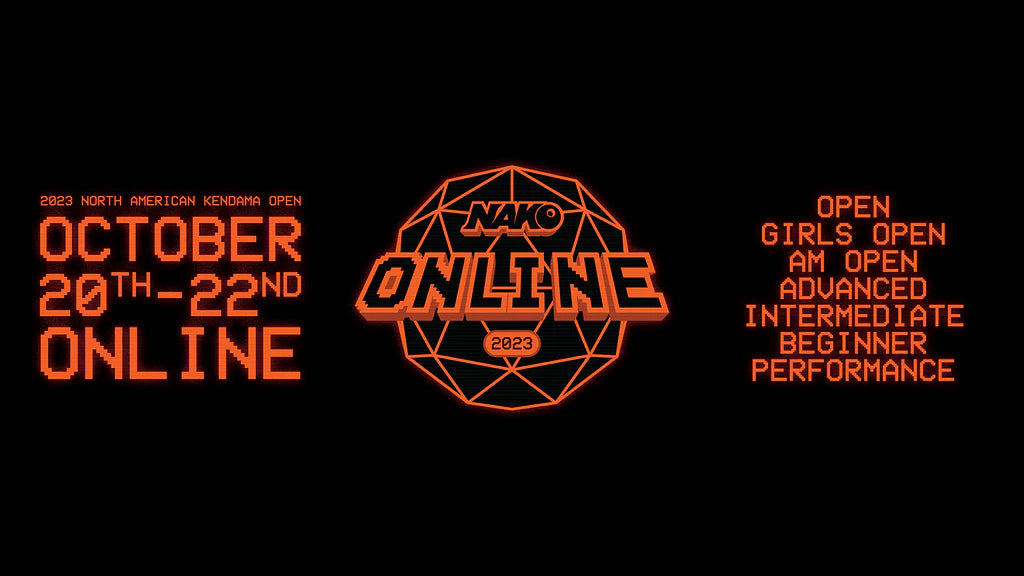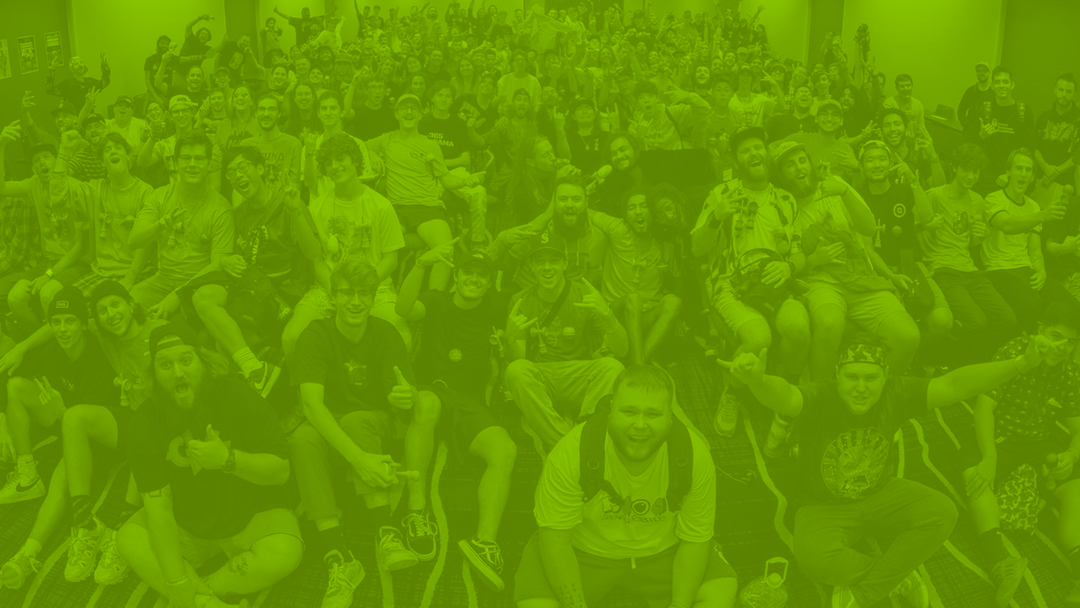Register for NAKO 2023 HERE!
The North American Kendama Open is happening once again, broadcasting live on Twitch! You might have a lot of questions:
- When is it?
- How do I participate/compete?
- How can I watch the event?
- What are the tricks/divisions?
We’ve posted this article to help you find out all you need to know about the biggest Kendama competition in the United States and how to get involved!
How Can I Watch?

NAKO 2023 is going down on October 20, 21, & 22nd, streaming live on Twitch and FREE TO WATCH! You don't even need a Twitch account to stream the competition, but you will need one if you want to chat, enter drawings, and interact with the broadcast in any way.
Giveaways on our Twitch stream are “Subscriber Only”, meaning that in order to enter the drawings for free kendamas, you’ll need to become a supporter of our Twitch Channel! A subscription to the channel is $4.99 on Desktop ($5.99 on Mobile) or you can link an Amazon Prime account to your Twitch account for one free subscription a month that you can use on your favorite Streamer (hopefully, that's us!).
Make sure to follow our Twitch Channel to be notified when we go live!
How Does the Competition Work?
Even if you’ve played sports before, you may have never heard of an “Open Format” competition. Check out this video or click HERE to learn how it works!
Firstly, all tricks are chosen and made public ahead of time in order to provide players with time to practice and prepare. Each existing division has a specific list of these predetermined tricks that players pull during the competition, at random, during each match. Each match is head-to-head, meaning that each consists of one player versus another player, competing against each other. The first player to 3 points wins the match and moves on in the competition.
Once registration is completed and the number of players in a division is finalized, the competitors are randomized and sorted into a bracket. This bracket serves as the order by which each match is played and who plays against who. You can see a basic visual example of how an Open Style Bracket looks as pictured below.

How a Match Looks
At the beginning of a match, a judge will determine who has choice advantage at the start, usually by conducting one game of Rock, Paper, Scissors. Whoever wins this initial decision is given the choice to go first or second. Once the starting player has been designated, the match begins. Each round of play, the "starting player" position switches back and forth between competitors.
Points are won by landing tricks successfully when your opponent is unable to land them. If a starting player sets the trick by landing it in a single attempt, the second player has a chance to “match” their opponent by landing the trick on their single attempt.
If the starting player lands a trick in one attempt, “setting” the trick, and their opponent misses on their one attempt, the starting player is awarded the point. On the other hand, the responding player can earn a point if they are able to land a trick in one attempt after the starting player's missed attempt. This format is repeated until a point is awarded or both players have had 3 attempts each.
If neither player is able to win the point on their opponent within 3 attempts, the point is declared "NULL" by the judge and a new round of play begins.
Tricks
Not sure which division is right for you? Check out the trick videos below and see where you fit in!
BEGINNER - NAKO 2023 - BEGINNER DIVISION TRICK LIST
INTERMEDIATE - NAKO 2023 - INTERMEDIATE DIVISION TRICK LIST
ADVANCED - NAKO 2023 - ADVANCED DIVISION TRICK LIST
AMATEUR OPEN - NAKO 2023 - AM OPEN DIVISION TRICK LIST
OPEN - NAKO 2023 - OPEN DIVISION TRICK LIST
GIRLS OPEN - NAKO 2023 - GIRLS OPEN DIVISION TRICK LIST
Volunteers
Kendama events are often a communal effort; players and companies come together to make the entire competition run smoothly, and this one is no different. We’re asking for volunteers who would like to help judge matches for any division to please reach out to us. You’ll need:
- Knowledge of all the tricks in the division you want to judge
- Knowledge of how Open format works
- Experience with judging (preferred, not required)
- Access to a stable internet connection
If you would like to volunteer, please fill out our Google Form or email us at CS@sweetskendamas.com.
Register for NAKO 2023 HERE!







Leave a comment